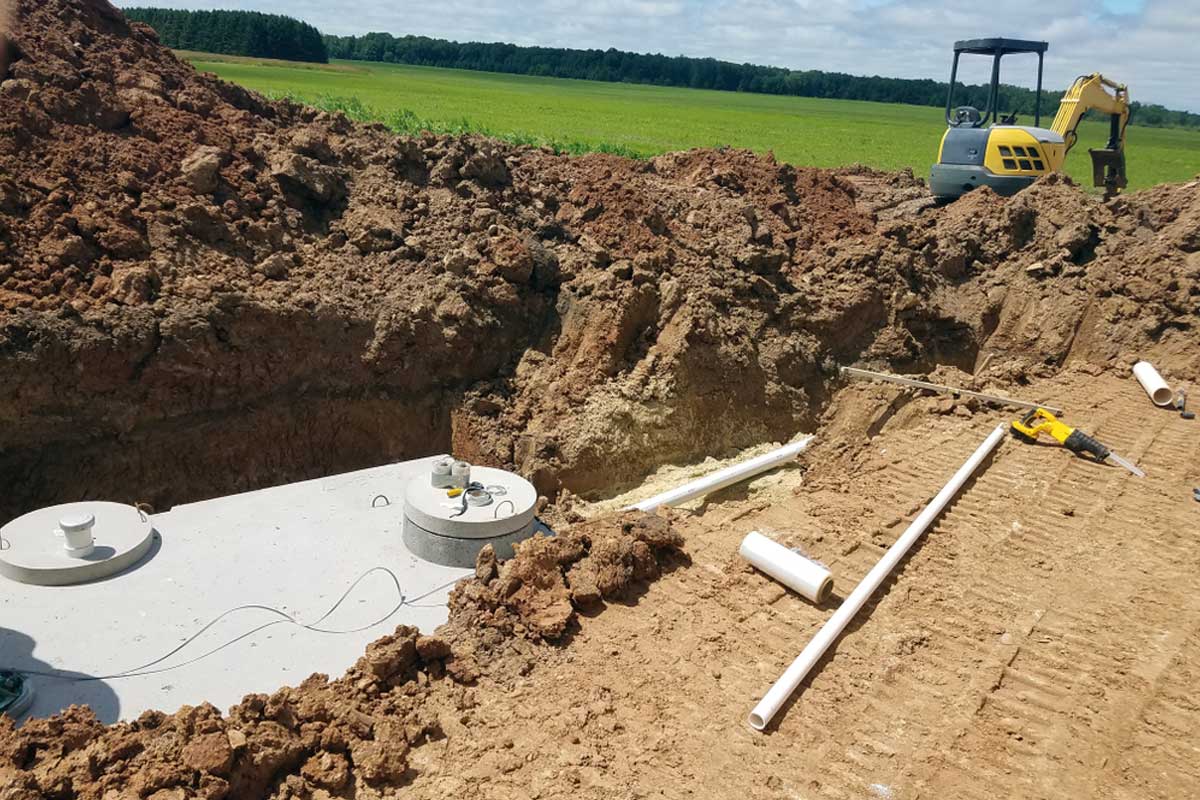If your house or business isn’t connected with the municipal sewer system then a septic system will most likely be in place to handle your wastewater. Although septic systems are an efficient and sustainable method to handle wastewater, they require regular maintenance and may eventually require replacement. In this article, we will provide an extensive guide for managing the cost of septic systems for the installation as well as replacement.

Installation of a Septic System
While a septic tank install could be costly It is important to ensure that wastewater generated by your property is handled correctly and in a safe manner. The cost of a septic system installation can differ widely based on a variety of factors, including:
The size of the property require larger septic tanks to handle the increased volume of wastewater. Larger homes will require larger and more costly septic systems.
Bedrooms: The number of bedrooms in your home or business will impact the size of your septic tank. New Hampshire requires that a minimum of a tank capacity of 1,000 gallons be put in place for at least three bedrooms plus an additional 250 gallons of tank capacity be added for every additional bedroom.
Site conditions: How the terrain of your property as well as the soil type and permeability will affect the cost of installation. The more challenging terrain or soil conditions could require an additional excavation or the use of specialized equipment to be used, which can increase the cost.
Zoning requirements and permits: The requirements for zoning and permits can differ from one state to another. There may be a need to pay additional charges for permits and inspections.
The cost of a septic system’s installation in New Hampshire ranges from $5,000 to $10,000, based on the above variables. This is a rough estimate and your specific needs will determine the amount you pay.
Cost of septic system repair
Based on the way they are operated and maintained, septic systems can last between 20 and 40 years. When a septic system begins to fail, it is typically more cost-effective to replace it all the way rather than trying to repair it. Signs that your septic system may require replacement include slow drains or standing water in your yard and drainage issues.
The cost of replacing a septic tank will depend on various variables, such as the size of your house, how many bedrooms you have, and what conditions you are in. But, a septic system replacement generally costs more than a brand new system due to the need to get rid of the old system properly.
On an average, the cost for a replacement septic system in New Hampshire ranges from $10,000 to $25,000, depending on the above variables. This is an estimate of the average. Each situation will determine the final price.
Tips for managing the cost of a septic system
Regular maintenance: Regular septic system maintenance, which includes inspection and pumping, can extend the lifespan of your system and help prevent expensive repair or replacement.
Choose the best contractor A reliable contractor will make sure that your septic system has been correctly installed and is code-compliant. This will save you money on expensive repairs and penalties for not complying.
Do not flush non-biodegradable products. Flushing nonbiodegradable items like diapers and toiletries can create the septic system to become blocked. system, which could lead to costly backups.
Conserve water: Conserving water can lessen the workload of your septic system as well as extend its life span.
The most appropriate system is best for your property.
In order to ensure a functional and safe septic system, it is important to keep it in good condition. Maintaining your septic tank can be a money-saving option and can help you avoid costly repairs and reduce the possibility of contamination by groundwater. It also helps to avoid odors and backups. Regularly pumping will improve efficiency and prevent expensive damage due to cracks and blockages. Regular inspections are important because they allow you to spot any potential issues early. Taking these steps will help ensure a safe and effective system for septic that is in compliance to environmental standards. Overall, having a documented maintenance plan for your septic tank can reduce time and cost in the long run as in addition to providing peace of mind that your commercial or residential property will be able to function as a septic system for many years.
For more information, click septic system cost